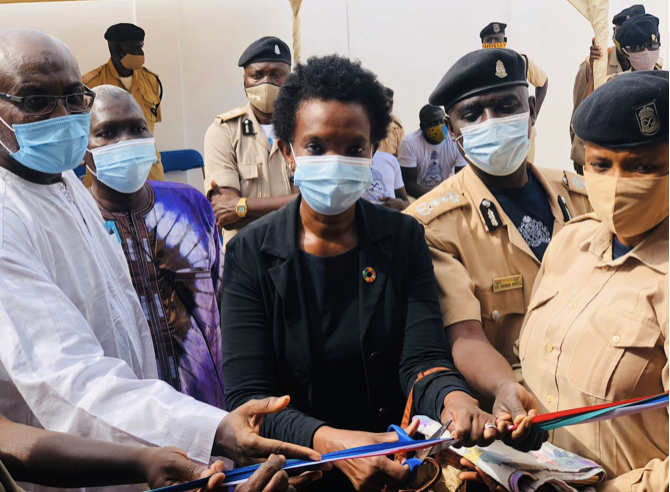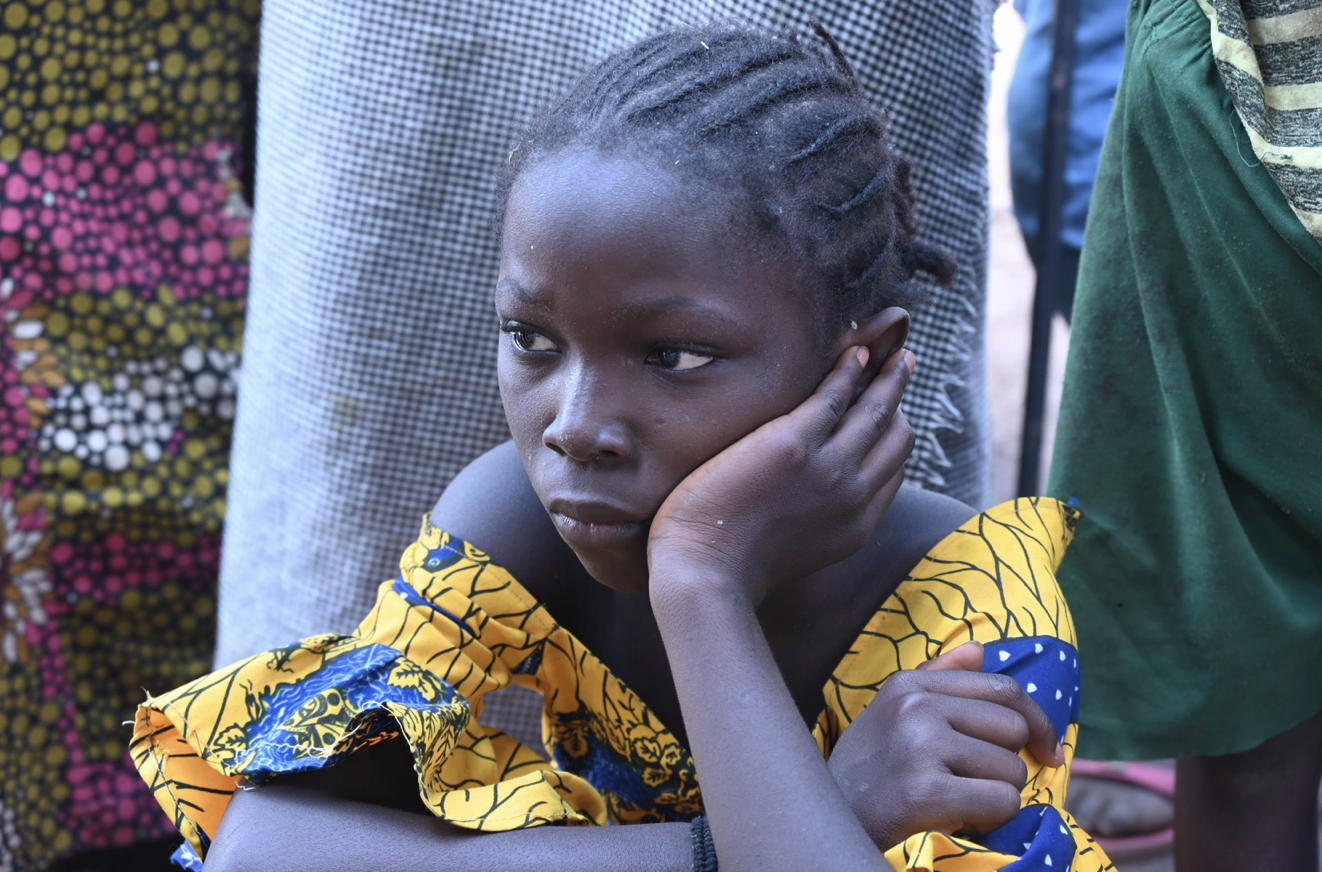Promoting Rule of Law through Legal Aid: A Sustainable Development Goal
March 6, 2023
Women testifying in the Truth Reconciliation and Reparations Commission
The UN Principles and Guidelines on Access to Legal Aid in Criminal Justice Systems (67/187) were adopted by the UN General Assembly in December 2012, marking the first international instrument on the right to legal aid. The goal of this instrument is to provide legal services to the disadvantaged and marginalized, ensuring access to justice for all. However, prisoners, particularly female prisoners, are among the most vulnerable and disadvantaged in the penal system. To address this issue, UNDP has been working with national partners and other UN agencies to provide free legal aid to prisoners through mobile legal aid clinics.
Since its launch in The Gambia in 2019, four mobile legal aid clinics have been established within and outside the Greater Banjul Area, coordinated by the Gambia Bar Association and administered by the National Agency for Legal Aid, NALA. The Covid-19 pandemic has disproportionately affected vulnerable groups, making it even more challenging for them to access basic services. Therefore, UNDP in partnership with various organizations is supporting the Mobile Legal Aid Clinics (MLACs) in 4 regions and 16 communities. Women and children's issues are prioritized, particularly in rural areas where they have limited access to information about their rights.
Furthermore, a Prison Legal Aid Desk (PLAD) was established under the functional Female Wing at the Janjanbureh Prison Facility to increase access to justice for female inmates remanded and/or convicted at the facility. Between 2020 and the second quarter of 2022, 314 women and 73 children have received legal service from PLAD. The efforts of UNDP and its partners have helped to provide legal aid to theses vulnerable groups, ensuring that they have access to justice and legal services.

At the core of Prison Legal Aid Desks lies the crucial need for redressal. Many inmates face a lack of information and awareness concerning their legal rights, including appeals, parole, remission, and their respective procedures. Additionally, a significant number of convicts lack the means to hire legal representation or are unaware of the status of their bail applications, appeals, and Special Leave Petitions (SLPs). Hamidou Drammeh, a 25-year-old from Karantaba Tumana in the Upper River Region of the Gambia, provides an example of the importance of legal aid in prisons. After being charged with obstruction of justice by a police officer on July 12, 2019, he was remanded at Jeshwang Prison following his arraignment before the Kanifing Magistrate Court ten days later. Four months after his detention, a lawyer representing the Gambian Bar Association provided pro-bono services to Hamidou at the Jeshwang Prison Legal Aid Desk, where it was discovered he had been held incommunicado. To proceed with his case, the Legal Aid Team contacted his brother, Muhammed Drammeh, who confirmed that they had not heard from Hamidou since his imprisonment. To secure his release, his brother had to travel 370km to join the Prison Legal Aid Desk team in processing his bail. Ultimately, after spending four months in custody, Hamidou's case was presented before the Kanifing Magistrate Court, and he was released on bail after the Legal Aid Team, and his brother prepared and signed a bail bond of 50,000 Gambia Dalasi. In light of his release, Hamidou and his family expressed gratitude towards the UNDP, Gambia Bar Association, and Gambia Prison Service for establishing a Legal Aid Desk to support inmates who cannot afford legal representation.
“We are grateful to United Nation Development Programme (UNDP), Gambia Bar Association and the Gambia Prison Service for establishing a Legal Aid Desk within the Prisons to assist people who cannot afford a lawyer”.
“Also, I thank all those who have made it possible for me to have my Liberty.

The case of Bongal (not her real name), a 17-year-old girl who was arrested and arraigned before the Children’s Court on a charge of murder, is another example. The case of Bongal highlights the critical importance of legal aid services in ensuring access to justice for all, particularly for disadvantaged and less privileged individuals. Bongal's experience of being arrested and arraigned for a serious offense, and subsequently rearrested on the same charges, demonstrates the need for competent and effective legal representation to protect the rights of accused persons.
The National Agency for Legal Aid played a crucial role in securing Bongal's release on bail and successfully arguing her case in court. However, the case also highlights the need for improvements in the justice system, including the capacity of police investigators in gathering evidence and conducting forensic investigations.
Institutions working on child justice require continuous capacity strengthening, refresher & advanced trainings on child rights to ensure that the rights of children are protected throughout the justice process. This is critical for building a more productive and stable community in the long term, as access to justice is a fundamental component of a fair and equitable society.
In conclusion, the case of Bongal underscores the importance of legal aid services in ensuring access to justice for all, and highlights the need for continuous improvement and strengthening of the justice system to safeguard the rights of accused persons, particularly children.
“I was really devastated when I was arrested for the second time and I spent sleepless nights thinking about the case. At one point I was very hopeless. I am grateful for the lawyers who represented me throughout and I pray for them. Because of their support, I am now back home with my family,” said Bongal.
The greatest benefit of the Prison Legal Aid Desk is a more productive and stable community in the long term, for indeed, providing quality and timely legal services to the disadvantaged and less priveleged leads to a more equitable and peaceful society. Afterall, justice delayed is justice denied. And there cannot be peace without justice.

 Locations
Locations